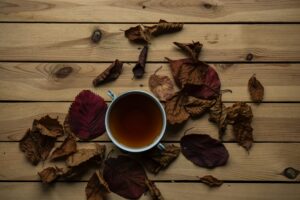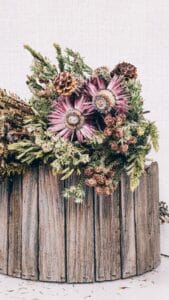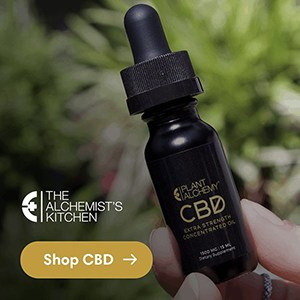Echinacea–a familiar friend and ally to so many! This beautiful herb supports our immune system when sickness or infection strikes. Echinacea is wonderful medicine and prevention for cold and flu season. We can often find Echinacea medicines in even mainstream drug stores or supermarkets.
Echinacea, sometimes called ‘Purple Coneflower,’ is a flowering plant in the Asteraceae family. We use both Echinacea purpurea and Echinacea Angustifolia medicinally, often mixed together, so it’s generally identified as Echinacea spp. All parts of Echinacea are medicinal. Many herbalists include the root of the Angustifolia species and the whole flowering plant of the purpurea species in preparations.
Traditional Uses
Our knowledge of Echinacea’s medicinal benefits comes from the sophisticated pharmacopeias of Indigenous peoples in North America. Echinacea is native to the North American continent and was once extremely abundant in the wild.
The Lakota people, for example, traditionally made a poultice from the root of E. Angustifolia to apply to wounds, burns, and venomous bites. They also made a decoction of the roots for supporting the immune system and easing sore throat, fever, and flu symptoms.
The Cheyenne people chewed on the root for toothaches, colds, and congestion. Additionally, they brewed a tea of roots and leaves for sore throats and applied a decoction of the root externally to cool fevers and burns.

Herbal Actions
Echinacea is cooling and dispersive or stimulating energetically. Its main actions include immunomodulator, immune stimulant, antimicrobial, alterative, anti-inflammatory, and lymphatic. Echinacea improves immune response and resistance to infections. This herb’s active constituents help the body kill pathogens, stimulate macrophage activity, and act as a circulatory stimulant.
Echinacea is best taken at the first signs of illness, or preventatively when traveling, visiting hospitals, after exposure to sick folks, etc. Several double-blind studies found that Echinacea extract reduces the symptoms of a cold, and shortens its duration. It’s also effective in the treatment of staph infections, colds and flus, respiratory tract infections, blood poisoning, cancer protocols, and many conditions of the skin.

Methods of Medicinal Use
A potent preparation of good quality Echinacea should leave your mouth tingling and salivating! The constituent ‘echinacin’ acts as a sialagogue, causing salivary glands to produce saliva. Echinacea is also rich in nutrients; it contains vitamins A, C, and E, and minerals iron, iodine, copper, potassium, and sulfur.
When using Echinacea, I recommend using a tincture, liquid extract, or decoction rather than powdered root or capsules. This is because certain constituents are prone to oxidation and deteriorate rapidly once the plant material is ground or chopped.
Echinacea has been overharvested in the wild, but it’s very easy to cultivate if you have the time and space available! This lovely flower likes moist, well-drained, limey soil. If you’re planning on harvesting the root, I recommend waiting 4 years for it to develop properly.
Herbal Safety & Contraindications
Echinacea is a safe herb for most. I recommend taking it for a short period of time (not longer than 6 weeks). High doses may cause nausea and/or mouth & throat irritation. Those with allergies to plants in the Asteraceae family should avoid Echinacea.
Some folks warn against taking Echinacea if you have an autoimmune condition, due to its immune-stimulating properties. However, I’ve never seen an adverse reaction of this nature in my practice or heard of this happening elsewhere. Again, Echinacea is too stimulating for long-term use, so do not take this herb every day. When in doubt, always work with a trusted herbalist!

Sources
Forest, Hannah. HERBAL MONOGRAPH – ECHINACEA. https://grownwellness.com/blog/monograph/echinacea
Hobbs, Christopher. Echinacea: From Native American Panacea to Modern Phytopharmaceutical.
https://www.christopherhobbs.com/library/articles-on-herbs-and-health/echinacea-from-native-american-pancea-to-modern-phytopharmaceutical/
McMillen, Bonnie K. Mulvihill, Carol J., University of Pittsburgh at Bradford. About Echinacea
https://www.pitt.edu/~cjm6/w98echin.html







